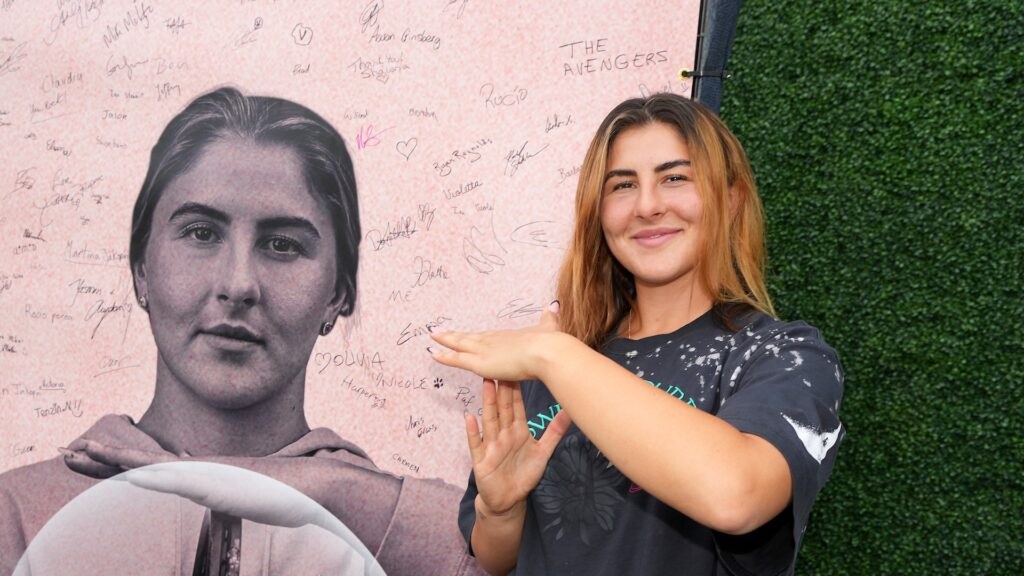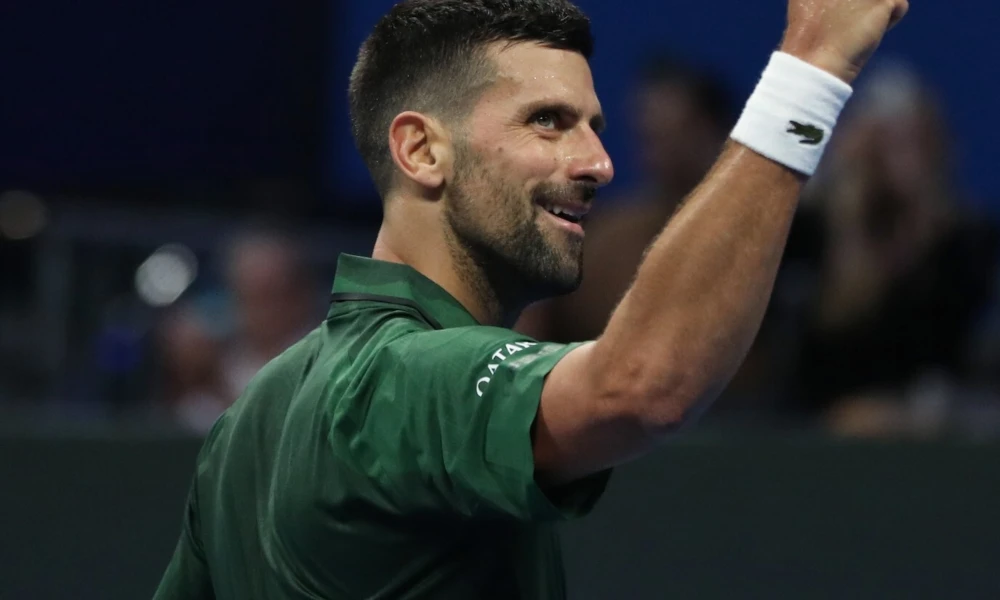Hello tennis fans and welcome to “Inside the Lines,” a column I’ll be writing for the National Bank Open presented by Rogers each week that features news and storylines from the world of men’s tennis.
Life as a professional tennis player can seem glamorous and carefree at first glance. You get to travel the world, play in front of thousands of fans and compete for the biggest titles in the sport for money that many of us can only dream about.
When you dig a little deeper, however, it’s clear that for many, tennis is a daily grind where breaking even is the best you can hope for. The physical toll it takes on the body as well as the mental challenges that accompany the solitude that the sport brings with it can be overwhelming for many.
It’s time for tennis to truly prioritize the well-being of its players and here in Canada I can confidently say that there is a real push to make that happen. Mental health will once again be at the forefront of the National Bank Open this August as Tennis Canada continues to place great importance on this aspect of life on tour for the players as it continues to grow its Mental Timeout initiative.
Entering its second year of existence and backed by a new sponsor in Beneva, the largest mutual insurance company in Canada, the Mental Timeout initiative will, “Build on Tennis Canada’s mission to improve the wellbeing of all tennis players across Canada and to ensure a safe and inclusive environment for all those who pick up a racquet.”
While pressure exists in all of professional sports, tennis stands apart from many others in the fact that tennis players have to go it alone on the court. They operate in a sense as independent contractors and aside from those at the pinnacle of the game who can afford their own entourage, many are travelling tournament to tournament on their own. Having a full-time coach, physiotherapist, trainer and even mental health support personnel is simply not affordable for the majority of tennis professionals.
That being said, even the most successful players in tennis at times can be overwhelmed by the pressures that come with such extreme fame.
In the past we’ve seen stars exit the sport early such as Bjorn Borg as well as those who have stepped away for periods of time such as Andre Agassi and Jennifer Capriati. Mental health wasn’t really addressed back then, or at least not nearly to the extent that we as a society seem to be valuing its importance today.
In more recent times, Naomi Osaka and Canada’s own Bianca Andreescu have also both required some time away from the sport in order to prioritize their mental wellbeing. Clearly there is a need to do more to help support these individuals.
Having an organizational body of sport like Tennis Canada decide to put a genuine effort into protecting players – both established pros and the next wave of young talent that we are producing – is a reassuring step that hopefully many other stakeholders in tennis will also adopt.
The Mental Timeout initiative supported by Beneva will count on three Canadian tennis players to act as ambassadors in 2023 including Bianca Andreescu, Alexis Galarneau and Canada’s top-ranked wheelchair player Rob Shaw.
Year one of the Mental Timeout initiative saw positivity cards, quiet rooms for meditation and access to mental health experts available for the players throughout the National Bank Open. There was also The Positive Court Pledge, a giant wall where ticket buyers, tournament staff, volunteers, media and players were invited to sign their names, making a written commitment to ensuring a positive environment for all the athletes where they felt supported and uplifted.
I spoke recently with Canadian tennis coach and former player Rob Steckley about the importance of addressing mental health with the young Canadian players he is working with such as Kayla Cross and Vicky Mboko and he had plenty to say on the topic.
“You want to educate them because it’s real and it’s out there. The girls that are coming through the Tennis Canada program have dealt with it every single day, it’s incredible. I thought maybe it might miss the younger generation but unfortunately it’s across the board.”
Steckley and his team have a process in place after a match to ensure that young players aren’t subjected to reading negative comments that might be sent their way before they’ve had a chance to talk and debrief together first. Keeping some distance between the players and their cell phones is one way that he tries to shield them from the hurtful comments that are directed at tennis players on a regular basis.
“Obviously the more pressure they’re feeling in these matches it doesn’t help, but I always tell the kids at the end of the day don’t go straight to your phone. We have a rule, that you’re gonna come and hangout with us and we’ll go through things, we’ll do our cool down, we’ll be professional. I don’t want that cell phone turned immediately because I have seen at these tournaments that the first thing that players do is subject themselves to their cell phone and read these comments.”
While the steps being taken by Tennis Canada demonstrate a positive step in the right direction towards helping players cope with the many challenges and stresses that they face week-in and week-out, it is by no means a once-and-done type of approach nor does it purport to solve all the issues that exist in regards to mental health in the world of tennis.
As their recent statement on the continuation of the initiative admits, “Mental Timeout is not a quick fix to answering all the problems concerning players and their mental health. It is the beginning of a long and important journey that displays a willingness to ask questions, find solutions and create a safe and inclusive environment where everyone performs their best.”
If you’re at the National Bank Open this summer, be sure to take the time to sign the Positive Court Pledge and fill out a Positivity Postcard for some of your favourite players. Everyone should feel safe and accepted at their place of work and tennis players are no different. Support of this program will also encourage similar measures to be taken at other events on the tennis calendar, ensuring that tennis players feel that support no matter where they are playing.








